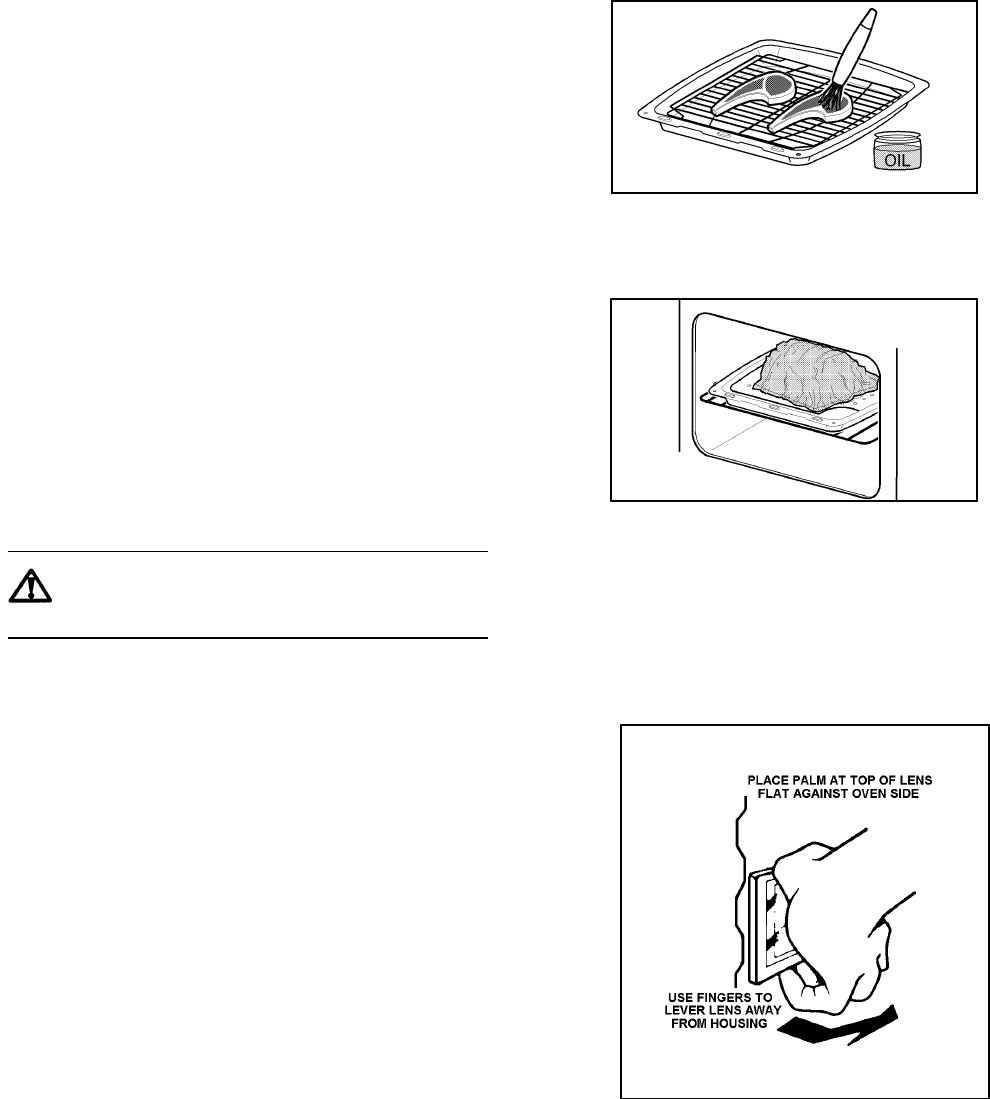
30
COOKING TO REDUCE SOILAGE.
· Cook at the recommended temperatures. Higher
temperatures during roasting will increase
soilage. Try cooking at lower temperature for an
increased length of time, you will save energy
and often the joint is more tender.
· Use minimal, if any, extra oil or fat when roasting
meat, potatoes only require brushing with fat
before cooking. Extra fat in the oven during
roasting will increase splashing and soilage.
· It is NOT necessary to add water to a meat tin
when roasting. The water and the fat juices from
the joint create excessive splattering during
cooking – even at normal temperatures, as well
as causing condensation.
· Covering joints during cooking will also prevent
splashing onto the interior surfaces. Removing
the covering for the last 20-30 minutes will allow
extra browning if required. Some large joints and
turkeys especially benefit by this method of
cooking, allowing the joint to cook through before
the outside is over-browned.
REPLACING THE OVEN LIGHT BULB
Isolate the appliance from the electricity
supply before replacing the bulb.
The type of bulb required is a 300°C, 25 watt small
Edison Screw.
1. Make sure the appliance is cool before you
replace a bulb
2. Open the door and remove the shelves and
wirework runners.
Instructions on how to remove the wirework
runners are given on page 29.
3. Pull the glass bulb cover towards you and then
pull it off. If necessary use a screwdriver to
carefully lever off the cover, taking care not to
damage the oven cavity.
4. Unscrew the bulb by turning it to the left.
5. Fit a new bulb and then replace the glass bulb
cover.
6. Refit the wirework runners and replace the oven
shelves
7. Restore the appliance to the electricity supply and
reset the time of day.


















